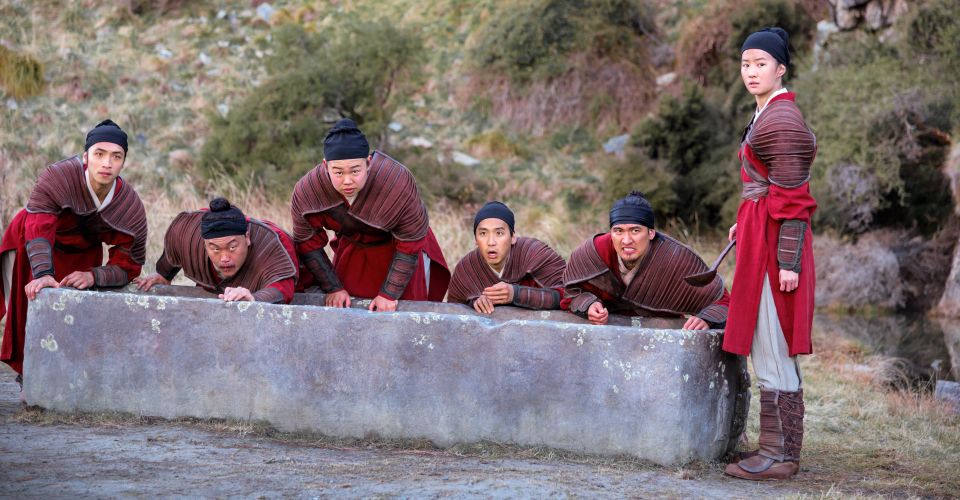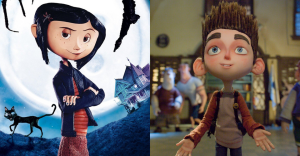Jimmy Wong Interview: Mulan

Ling and his fellow soldiers are an unforgettable component of Disney’s animated Mulan, and Jimmy Wong couldn’t be happier to bring the iconic character to live-action. In a story without talking dragons or musical numbers, the task of bringing humor to the battlefield falls on Ling – but even he understands the how high the stakes are in this more realistic take on the timeless tale.
Wong chatted with Screen Rant about what he took from the animated version and how Ling differs in the 2020 adaptation. He also shared his praise for Niki Caro’s steady direction and the advice his senior actors shared about the industry.
There are parts of Mulan that don’t even feel like a Disney movie anymore; it’s a complete retelling. How familiar are you with the original animated version?
Jimmy Wong: Very familiar. I’ve probably seen it five or six times now. I love it.
What’s your favorite song in the animated film?
Jimmy Wong: I think it definitely has to be “A Girl Worth Fighting For.” Obviously, “I’ll Make A Man Out Of You” is the all-time classic. But I love the stark contrast that happens at the end of “A Girl Worth Fighting For,” when they come across the war-torn battlefield and the movie ceases to be a musical.
And that to me is super, super exciting. Wow, all of a sudden we’re caught in the realness of this war, and all these soldiers singing these platitudes about these mythical women we’re fighting for, it’s all brought to reality. That was my favorite song for a lot of reasons.
How is Ling’s character expanded and made more three dimensional than the animated film?
Jimmy Wong: In the animated version, the original trio serves as a comedic foil. We’re constantly battering each other around and being very silly, and in a lot of ways it’s unrealistic, because this is a real war. In the new live-action remake, we bring everything to the forefront; the reality of the situation, and how scary it is for a lot of them.
Ling serves as the person that is sort of like the philosopher of the group; the person that is the heart and, I think, ties the real world into what’s happening. He lets everyone know, at a certain point, “Hey, I don’t know if we’re gonna make it out of this thing alive.” And I think that’s actually really important to have a character say in the scenarios to help bring the gravity of the situation and get everyone, including the audience, to understand what’s actually at stake.
Did you study the original mannerisms and try to adapt them? Or were you creating a character solely based on the script, from the collaboration with the director?
Jimmy Wong: A really big part of making these characters real was making sure that we functioned with each other. There were five of us, for the most part, that were running around together – and making sure that we didn’t step on each other’s energy and that we all knew what our lane was became really important. Because we create a whole as a group of people, so Niki was very careful to craft that and to make sure that we all knew exactly what our wants and desires were as characters.
Obviously, I watched the original movie a bunch, and there’s a lot of elements of that character – including Ling’s silliness and the general levity that he adds to a lot of situations – but I had to really make sure that I was doing honor and justice to the script. More importantly, I was not doing anything that would override or overshadow what Mulan was doing in the movie. Because this is truly a movie about her, and we’re supposed to be there supporting and being sort of a couch that she can sit on as a character, so that other viewers in the audience can see everything clearly.

Speaking of “A Girl Worth Fighting For,” Ling is memorable for saying Mulan is one. How does he personify that in the live-action version?
Jimmy Wong: There’s actually a really cute scene where we’re all sitting around eating and talking about specifically a girl was fighting for. And you see what Ling’s version of that is. While I treat it very seriously in the movie, the subject matter and the way that everyone else hears it comes off a little bit comedic.
I think it’s really fun to see how the new movie took some of the old classics and reimagined them into real-life scenarios. And of course, the reactions of everyone else around them as they continue to have that conversation now, but in real life and not singing songs.
I heard that there was pretty rigorous training for this film. Can you walk me through some of the some of the training and physicality, as well as some of the skill sets you had to learn?
Jimmy Wong: Yeah, so we trained for a full two months before we ever set foot on set. And we continued that training throughout on both the north and south islands of New Zealand. It was horse training, physical training, fight training, Tai Chi, a little bit of everything. And it was really fun because we got to learn all this stuff and feel really cool doing it and have all the actions down. When we finally showed some of it to Nikki, it was like, “Great. Now can you guys do that, but look like you’re about to lose every single second along the way?” A lot of actors were like, “Wait, we can’t look as cool as possible?”
But we realized that it was really important as actors and as characters in this movie that we’re not top tier fighters. We just joined the army and a lot of us are not fit to be here, so fighting for our lives is actually a really integral and important thing for our characters to do. If we were just hack-and-slashing everyone up left and right, you’d lose a little bit of that reality and the stakes that are present. So, it was really fun to learn all this stuff and then use that knowledge to unlearn it on camera.
Your cast spoke very highly of your director, Niki Caro. Can you talk about the collaboration process and what she brought to directing such a large-scale scale film?
Jimmy Wong: Yeah, I think Nikki is fantastic because she has the pedigree to make a movie like this. I remember watching Whale Rider at the Seattle International Film Festival a long time ago, and just being blown away by it. As a kid that grew up in the Pacific Northwest, with a lot of Native American culture in Seattle itself, it was great to see her take on the cultural story of a young girl that defies the odds and beats traditions to become a new leader within her world.
I think Mulan fits all of those buckets exactly, so to me, it was an honor to be able to work with a director that really understood it and also researched the subject matter. And did so in a way that wasn’t derivative, or wasn’t appropriating any of that. Niki really knew that the core of the story was about the daughter and her father and that relationship, and being able to see her pull that out and really emphasize that and position everything else around, was almost like a magic act to me as an actor. We’re so used to only thinking about ourselves, so it was amazing to see how someone had the entire scope of a movie clearly pictured in her head with every step that she made.
This production is truly historic. Can you talk about that feeling on set, knowing that you’re part of a project aiming to be remembered in cinematic history?
Jimmy Wong: Yeah. I think a lot of what makes representation so important is that it also normalizes what’s happening. If we went on set every day, and everyone was like, “Look, only Asian actors!” or “Look, woman director!” I think you would lose that. Because the more you call it out, the more you try and put it on a pedestal, you’re actually losing the point of what you’re doing – which is normalizing this thing, so that everyone can feel like they can also accomplish that level.
I think that was a lot of the magic, knowing that you’re doing something special, but then getting rid of that idea and treating it like any other project. Because in the process of normalization, you’re doing something that is even more important. You’re showing the world that this is something that is not only doable, but can be really successful and create an amazing product that’s just as good if not better than its counterparts.

There are so many legends in this film. What was it like brushing shoulders with some of those greats? Any advice they may have given you during filming or even training?
Jimmy Wong: Yeah, we got to work with some living legends; Jet Li, Donnie Yen, Gong Li and Liu Yifei. On the American side, we had Ron Yuan and Jason Scott Lee, and they all have years and years of experience on us. Even just being able to sit down at a dinner table and hear them talk shop, trade stories left and right, how all this got messed up because of that or how this was an amazing experience because of this – that perspective is so important. Especially for some of the younger actors in the cast, because it shows people how to handle things with grace and how to handle things under pressure. How to not take a slight if it feels like someone insulted you or something went wrong; it’s not the end of the world. You need to look at the bigger picture, you need to be more holistic about it; you need to understand the process before you focus it on yourself.
I think having those people around, and just seeing how they handled themselves; how they talked to the director, how they didn’t yell, how they kept their voices lower, and how they give respect to the different departments was one of the more fascinating parts of the process. Because that respect towards the process of filmmaking itself is why we’re all here in the first place.
This version of Mulan takes itself very seriously. What did you learn about her or the story that you may not have known before?
Jimmy Wong: I think the big thing I learned is that Disney was willing to take a really great risk here. And they were willing to take a remake in a direction that every other remake before this, save maybe Cinderella, avoided taking. That, to me, says a lot about the faith that they had in the director and the crew. It also tells me a lot about the amount of work that was put into it, for them to be able to trust the director, the DP, and everyone else to that level.
So for me, as an entertainer and as someone that is sick and tired of remakes and sequels and all that, I’m glad that they were able to take a new direction with this. And I also trusted that the person that they’re giving this responsibility to was going to do it justice. I think that sentiment was felt all the way down through the cast and crew, and as a result, you have a movie that really is able to speak some truth and bring a fun and beautiful message to the world.
Mulan is now streaming on Disney+

















